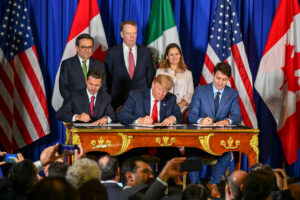In the context of mega-elections in 2024, the representation of women in political roles has nearly stagnated, with many countries witnessing a decrease in female legislators. Numerous systemic and societal barriers contribute to this trend, which contrasts with previous decades of progress.
Stagnation in Women's Political Representation Despite Major Elections Worldwide

Stagnation in Women's Political Representation Despite Major Elections Worldwide
As 2024 marked significant elections globally, the growth of women's representation in politics experienced a concerning slowdown, highlighting ongoing challenges and setbacks.
In 2024, significant electoral events took place across the globe, engaging approximately half of the Earth's population. Despite the scale and importance of these elections, data shows a troubling deceleration in the growth of female representation in political positions, marking the slowest advancement in this area over the past 20 years. Analysis by the BBC, leveraging information from 46 accounted countries, reveals that in nearly two-thirds of these nations, the number of elected women decreased following the elections. Notably, countries like the United States, Portugal, Pakistan, India, Indonesia, and South Africa witnessed declines, and for the first time, fewer women were elected to the European Parliament.
While there were isolated successes in nations such as the United Kingdom, Mongolia, Jordan, and the Dominican Republic—where new leadership brought incremental increases—global representation stagnated at a minimal growth rate of 0.03%. This follows a period of significant achievement from 1995 to 2020 when female political representation nearly doubled worldwide. Mariana Duarte Mutzenberg from the Inter-Parliamentary Union (IPU) reflects on this fragile progress, pointing out alarming losses, such as Tuvalu's elimination of its single female member of parliament, resulting in no women in its government.
Worldwide, women constitute only 27% of parliamentary seats, with only 13 countries nearing parity. Notable regional variations exist, with Latin America and parts of Africa currently leading in female legislative representation. Factors contributing to the advancement of women often include gender quotas; with Mongolia improving its female representation from 10% to 25% through mandatory candidate quotas. Quotas have proven effective, as countries without them see a significantly lower female representation average.
Discussion centers around the barriers restricting women's political engagement. A prominent issue is the ambition gender gap; research suggests women are less likely to perceive themselves as capable leaders without external encouragement. Dr. Rachel George highlights a potentially diminishing pool of role models, indicating fewer mentors for aspiring female politicians—a situation that could perpetuate the cycle of underrepresentation. Financial disparities also hinder women's campaign efforts, as they often face greater difficulties in securing funding compared to male counterparts. Additionally, societal norms typically assign more caregiving responsibilities to women, which can negatively influence voter perceptions.
Cultural context shapes the political landscape, with societal attitudes toward gender roles impacting women's candidacy. Electoral systems play a crucial role, as countries with proportional representation tend to elect a larger proportion of women compared to those utilizing first-past-the-post systems.
Moreover, the political arena has experienced a rise in hostility toward female leaders, underscored by gender-based violence and online disinformation campaigns that specifically target women politicians. This hostility creates a discouraging atmosphere for prospective female candidates. In South Korea, despite slight increases in female representation, a resurgence of anti-gender sentiment may dissuade support for women in leadership roles.
Ultimately, fostering gender diversity in political representation is not only essential for fairness but has broader societal implications. Research indicates that inclusive decision-making groups produce better outcomes, economically and socially. Furthermore, the presence of women in negotiation roles has demonstrated positive correlations with peace sustainability.
Julie Ballington from UN Women urges a reframing of the narrative, emphasizing that the challenge lies not in underrepresenting women but rather in the overrepresentation of men in leadership roles.





















